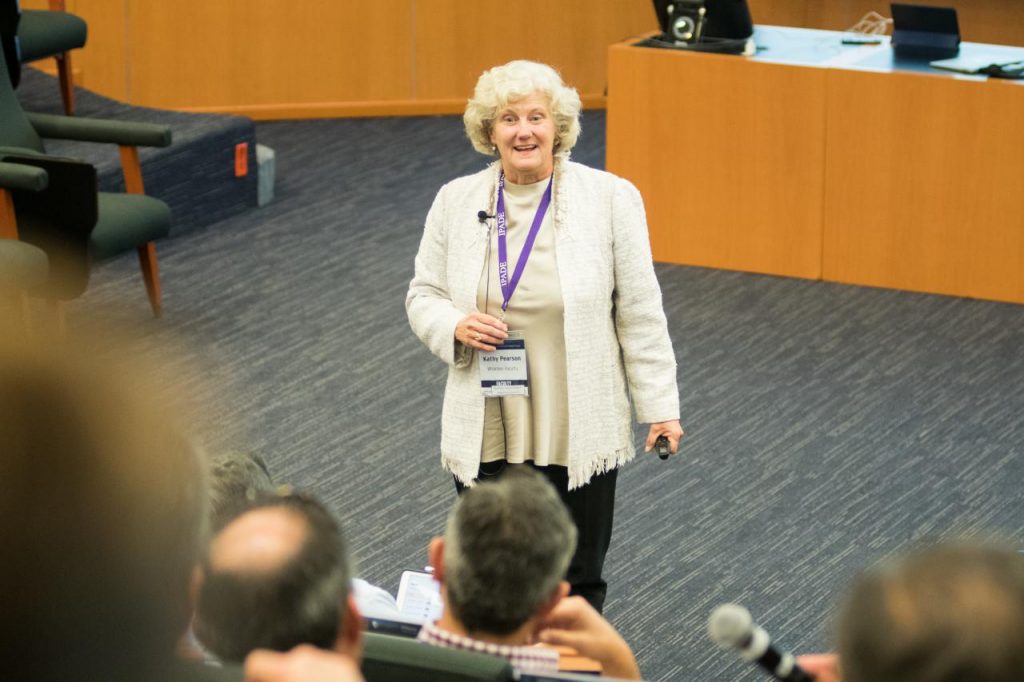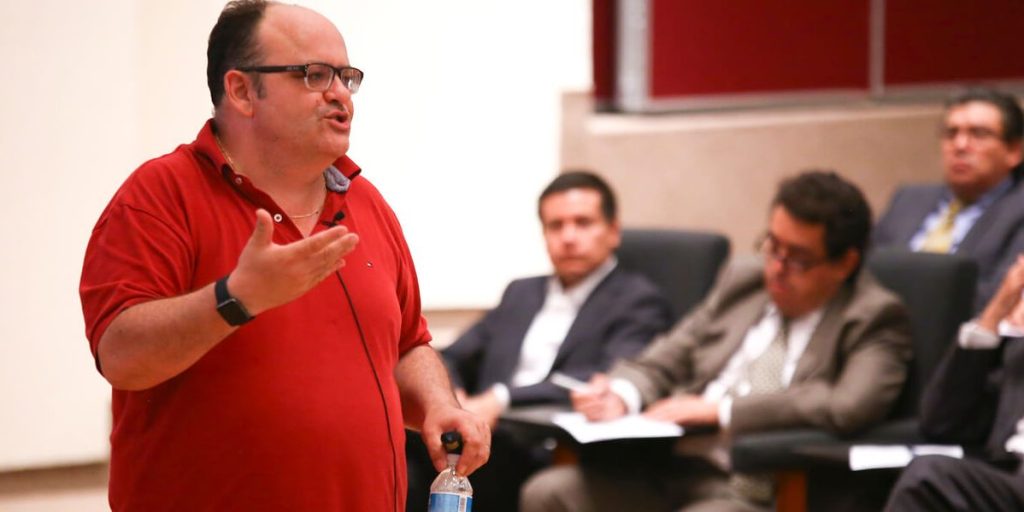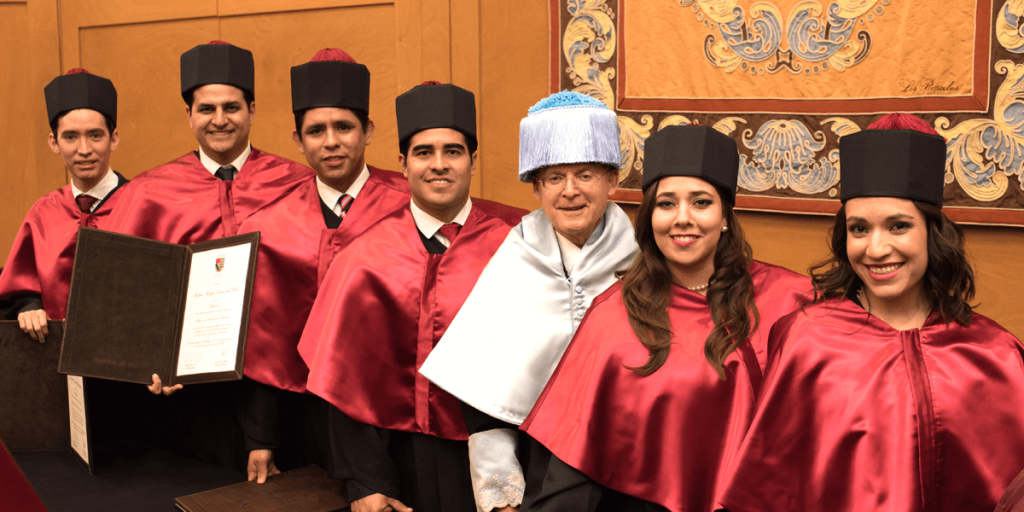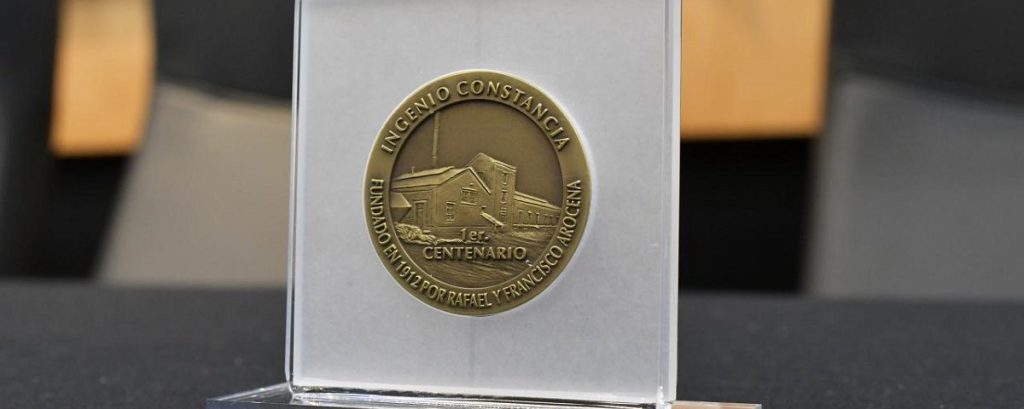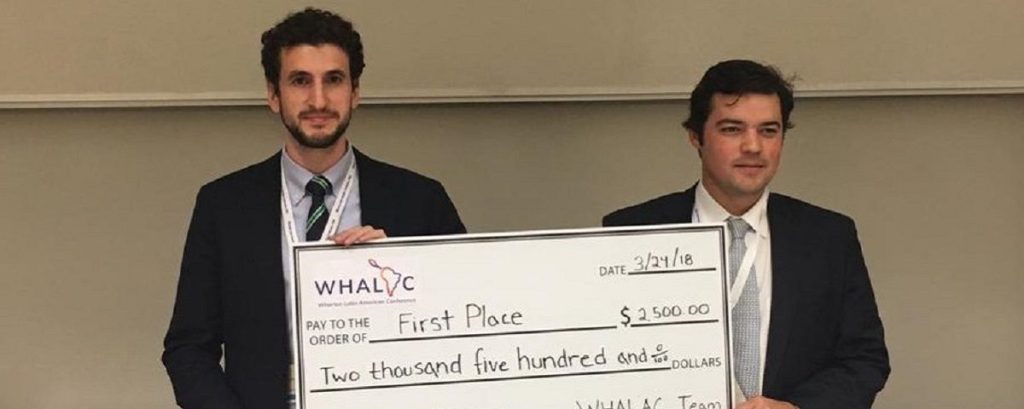From February 28 to March 2 IPADE, in partnership with The Wharton School, hosted the 2018 International Sessions for the AD, AD-2, and D-1 Programs at its campus in Mexico City. The event provided current IPADE MBA Executive Education participants from IPADE’s various campuses with the opportunity to participate in a series of interactive sessions facilitated by visiting professors from Wharton.
During her session, Dr. Kathy Pearson, Adjunct Senior Fellow at The Leonard Davis Institute of Health Economics (University of Pennsylvania), engaged with participants to identify why decision-making is so much more difficult today, as well as ways to address these issues and take action.
Dr. Pearson identified various reasons for the difficulty surrounding modern-day decision-making, including an overload of data and information; increased competition (lower barriers to entry/non-traditional competitors); volatility, uncertainty, complexity, ambiguity (VUCA); globalization; regulation; the speed of the information age; and a fear of failure. To address these issues and avoid paralysis by analysis, Dr. Pearson recommended adhering to Retired U.S. Army General Colin Powell’s 40-70 rule. According to this rule, you should have no less than 40 percent and no more than 70 percent of the information you need to make the decision; with less than 40 percent of information, you’ll make an uninformed decision, but try to get more than 70 percent of the information available and you’ll become paralyzed.
Additionally, Dr. Pearson encouraged the implementation of “productive paranoia” – a culture where sharing information is encouraged and there is an emphasis on learning.
“It’s important to establish a culture that is in contact with the client or the customer, and/or the regulators,” said Dr. Pearson. “Those are the people that can identify what’s happening in the marketplace long before those at the top of the business.”
Dr. Pearson encouraged participants to implement best practices, including acknowledging experiential frames, overconfidence bias, confirmation bias, and prospect theory. In order to avoid decision traps, Dr. Pearson suggested seeking diversity of thought, creating a sense of urgency, and surfacing and monitoring assumptions when making decisions, particularly when forecasting. She also focused on three actions that can be taken to increase a company’s strategic agility. The first was identifying key uncertainties, including planning for key trends and managing key uncertainties. The second was tracking uncertainties through trendspotting and sensemaking. And the last action proposed by Dr. Pearson was taking action around key uncertainties by conducting rapid experiments, making small bets, and building adaptability and flexibility.
“The biggest barrier to change is people,” said Dr. Pearson. “You have to have the courage to make the final decision… if not, the decision will never be made.”
In addition to the interactive sessions led by Wharton faculty, AD, AD-2, and D-1 participants were able to interact with their classmates from other campuses while enjoying three days of learning, improving, and networking. For more information on the 2018 International Sessions, click here.
